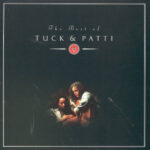“Hallelujah” by Leonard Cohen is more than just a song; it’s a tapestry of biblical allusions, love, loss, and redemption, woven together with haunting melodies and profound lyrics. Since its release in 1984, it has resonated across generations, becoming a modern standard performed by countless artists. But what are the words that give this song its enduring power? Let’s delve into the lyrics of “Hallelujah” to understand its depth and complexity.
The song opens with a reference to King David, a biblical figure known for his musical talent and his complicated relationship with God:
I’ve heard there was a secret chord
That David played, and it pleased the Lord
But you don’t really care for music, do you?
This opening immediately sets a tone of intimacy and questioning. The “secret chord” alludes to the idea of divine inspiration in music, but the following line introduces a sense of doubt or distance, perhaps directed at a lover or even at a higher power. The lyrics then describe a musical progression:
Well it goes like this
The fourth, the fifth
The minor fall, the major lift
The baffled king composing Hallelujah
This breaks down the basic musical structure of “Hallelujah,” hinting at the blend of minor and major chords that create its emotional complexity. The “baffled king” is again David, struggling to create his “Hallelujah,” a praise to God, even amidst his own human struggles and imperfections.
Alt text: Leonard Cohen passionately sings Hallelujah, his face reflecting the song’s profound emotion and spiritual undertones.
The next verse introduces the story of David and Bathsheba, a tale of faith, temptation, and human fallibility:
Well your faith was strong but you needed proof
You saw her bathing on the roof
Her beauty in the moonlight overthrew you
Well she tied you to a kitchen chair
She broke your throne, and cut your hair
And from your lips she drew the Hallelujah
This verse blends the biblical narrative with more modern, even slightly jarring imagery (“kitchen chair”). It speaks to the overpowering nature of desire and how even faith can be tested and broken. The “Hallelujah” here is drawn from a place of vulnerability and perhaps even defeat.
The song continues to explore themes of love and relationships, moving beyond the direct biblical narrative:
Baby I’ve been here before
I’ve seen this room, and I’ve walked this floor
I used to live alone before I knew you.
I’ve seen your flag on the marble arch
Our love is not a victory march
It’s a cold and it’s a broken Hallelujah
These verses shift to a more personal reflection on love. The imagery is less directly biblical and more focused on the intimacy and struggles within a relationship. The “broken Hallelujah” suggests a love that is not triumphant but flawed and imperfect, yet still worthy of recognition.
Later verses touch upon themes of communication, spirituality, and the search for meaning:
There was a time when you let me know
What’s really going on below
But now you never show it to me, do you?
And remember when I moved in you
The holy dove was moving too
And every breath we drew was Hallelujah
These lines explore the complexities of human connection and spiritual experience. The “holy dove” suggests a sacred element within intimacy, and “Hallelujah” becomes associated with the breath of life itself, a profound expression of existence.
The song acknowledges doubt and the harsh realities of love and life:
Maybe there’s a God above
But all I’ve ever learned from love
Was how to shoot at somebody who outdrew you
It’s not a cry that you can hear at night
It’s not someone who has seen the light
It’s a cold and broken Hallelujah
Here, the lyrics grapple with the darker side of love, comparing it to a battle. The “cold and broken Hallelujah” returns, emphasizing the song’s acceptance of imperfection and pain.
The final verses consider different interpretations of faith and expression:
You say I took the name in vain
I don’t even know the name
But if I did, well really, what’s it to you?
There’s a blaze of light in every word
It doesn’t matter which you heard
The holy or the broken Hallelujah
These lines suggest a personal and perhaps unconventional approach to faith. The “blaze of light in every word” highlights the power of language and expression, and the acceptance of both “holy” and “broken” Hallelujahs encapsulates the song’s central theme of finding praise and beauty even in imperfection.
I did my best, it wasn’t much
I couldn’t feel, so I tried to touch
I’ve told the truth, I didn’t come to fool you
And even though it all went wrong
I’ll stand before the Lord of Song
With nothing on my tongue but Hallelujah
The concluding verses offer a sense of humility and honesty. Despite failures and imperfections, there is a commitment to truth and expression, culminating in the ultimate offering: “Hallelujah.”
In Conclusion
The words to the song “Hallelujah” are a powerful testament to Leonard Cohen’s genius. They are not simply words of praise in a traditional sense, but a complex exploration of faith, love, struggle, and redemption. The song embraces both the sacred and the profane, the holy and the broken, ultimately suggesting that even in our imperfections and struggles, there is a space for “Hallelujah.” This nuanced and deeply human perspective is what makes “Hallelujah” continue to resonate with listeners worldwide, making it far more than just words to a song, but a profound artistic statement.

